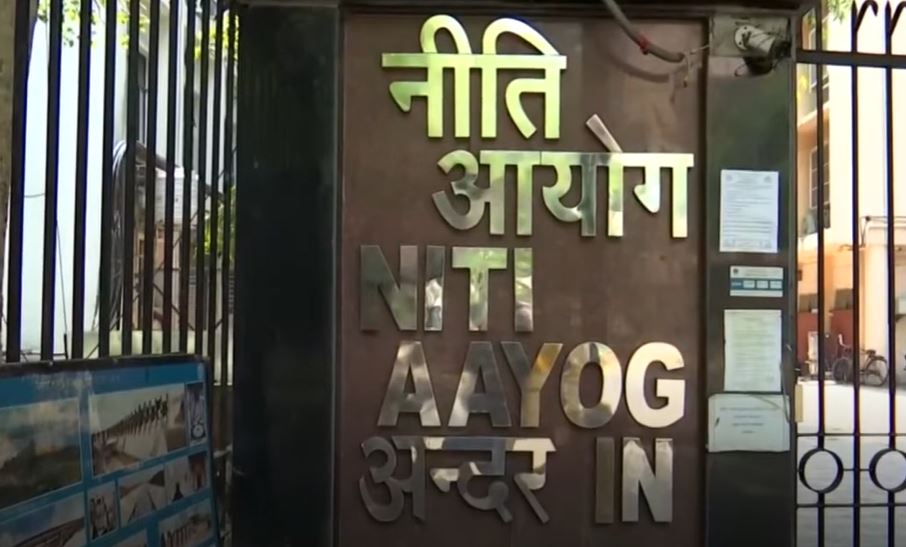Controversial Budget Sparks Boycott: CM’s Rejection Highlights Discriminatory Policies
In a significant political move, four Chief Ministers have announced their decision to boycott the forthcoming NITI Aayog meeting scheduled for July 27, 2024. This decision is a direct response to what they term as a “discriminatory” Union Budget unveiled by Finance Minister Nirmala Sitharaman. The chief ministers involved are M.K. Stalin of Tamil Nadu, Siddaramaiah of Karnataka, Revanth Reddy of Telangana, and Sukhvinder Singh Sukhu of Himachal Pradesh.
The Discontent Over the Discriminatory Union Budget
The central grievance voiced by these leaders revolves around the Union Budget’s perceived disregard for federal principles and equitable distribution of resources. Tamil Nadu Chief Minister M.K. Stalin, during a press conference, described the Budget as a betrayal to his state. He expressed profound dissatisfaction with the minimal increase in allocations for essential sectors like health, education, and agriculture, which he argues is alarming given Tamil Nadu’s pressing needs.
Stalin criticized the central government’s fiscal policies for their failure to address critical issues such as unemployment and inflation. He also highlighted the drastic cuts in funding for state welfare schemes and infrastructure projects. “The reduction in funding for social welfare programs will directly impact the most vulnerable sections of our society,” Stalin asserted. His critique extends to what he perceives as a lack of long-term vision in the Budget, accusing the central government of prioritizing short-term political gains over substantive policy advancements.
Similarly, Karnataka Chief Minister Siddaramaiah has voiced his discontent, emphasizing the Budget’s neglect of Karnataka’s essential needs and demands. He pointed out that despite calls for increased funding for crucial projects and infrastructure, the Budget has fallen short. “The Budget has ignored our farmers’ demands and has not rectified previous reductions in funding under various categories,” Siddaramaiah lamented. His critique also encompasses the broader implications of the Budget’s disregard for state-specific requirements.
Political Ramifications and State Reactions
The boycott by these chief ministers is more than a symbolic gesture; it reflects deeper political tensions between the central government and various state administrations. The move underscores the widening chasm between the Union Government’s policies and the states’ expectations. By abstaining from the NITI Aayog meeting, these leaders aim to underscore their dissatisfaction with what they consider a flawed budgetary approach.
Sukhvinder Singh Sukhu and Revanth Reddy, representing Himachal Pradesh and Telangana respectively, have joined the boycott, aligning their states with the broader criticism of the Budget. Their participation in the boycott signifies a unified stance among Congress-ruled states against what they view as discriminatory financial allocations.
The broader political narrative here involves allegations that the central government is selectively allocating resources to appease certain regional parties, thus compromising the principles of equitable governance. The accusations suggest that the Budget favors specific states, creating regional imbalances in disaster relief and infrastructure funding. This perception has fueled further discontent among the states left feeling marginalized.
Implications for Federal Dynamics
The boycott is likely to have significant implications for the dynamics of federal governance in India. By protesting against the Union Budget, these chief ministers are not only challenging the central government’s policy decisions but are also setting a precedent for state-level opposition to federal financial allocations. This move could potentially influence other states and political entities to reassess their stance on the central budgetary policies.
The response from West Bengal’s Mamata Banerjee and Kerala’s Pinarayi Vijayan, although not yet leading to a boycott, indicates a growing sentiment of discontent among other regional leaders. Their criticisms further highlight the ongoing debate over the fairness and effectiveness of central fiscal policies.
Summary
The boycott of the NITI Aayog meeting by four Chief Ministers—M.K. Stalin, Siddaramaiah, Revanth Reddy, and Sukhvinder Singh Sukhu—reflects a strong protest against the Union Budget, which they accuse of being discriminatory. Their actions underscore a broader criticism of the central government’s fiscal policies and their impact on state-specific needs and equity. The boycott highlights growing tensions and sets a significant precedent for state opposition to federal budgetary decisions.
Key Learning Points
| Point | Details |
|---|---|
| CMs Boycott NITI Aayog Meeting | Four chief ministers boycott in protest of the Union Budget. |
| Criticisms of the Budget | Claims of neglect in funding for crucial state needs and sectors. |
| Political Ramifications | Potential influence on federal-state dynamics and regional politics. |
Soumya Smruti Sahoo is a seasoned journalist with extensive experience in both international and Indian news writing. With a sharp analytical mind and a dedication to uncovering the truth, Soumya has built a reputation for delivering in-depth, well-researched articles that provide readers with a clear understanding of complex global and domestic issues. Her work reflects a deep commitment to journalistic integrity, making her a trusted source for accurate and insightful news coverage.



